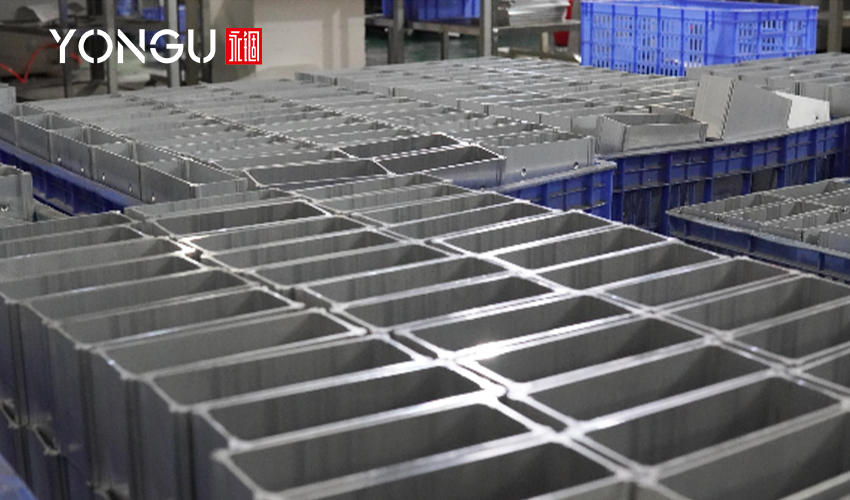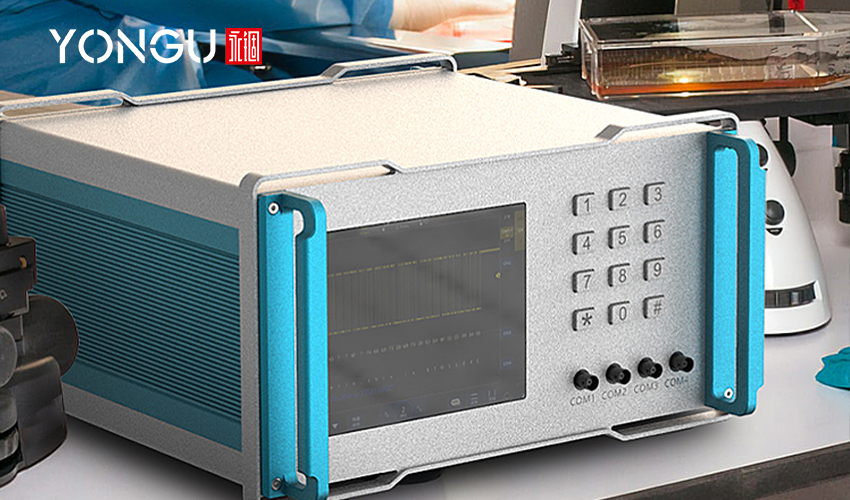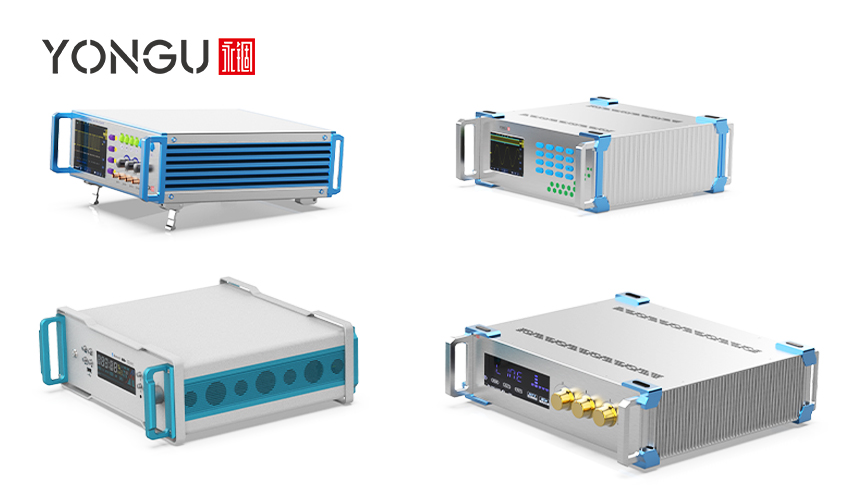Many types of enclosure materials are available for use in the modern industrial sector, each with its own advantages and disadvantages. Different types of materials offer varying degrees of safety and security for the electronics they enclose, and all of them contribute significantly to the durability of the electronics and the enclosure.
INDUSTRIAL ENCLOSURES MATERIAL
Painted Carbon Steel
This type of steel is more flexible, robust, and efficient at distributing heat than other types of steel because of the high carbon content. It is utilized in a wide variety of commercial and consumer applications. It is a low-cost metallic enclosure that is typically used for interior enclosures.
An interior layer of base coat and an exterior layer of powder coat provide a surface that is robust and resilient to scratching. The paint finish consists of these two layers. The metal is not affected by organic solvents, alkalines, or acids.
Stainless Steel
The most prevalent forms of stainless steel utilized in the construction of enclosures are grades 304 and 316.
For increased defense against corrosive liquids, alkalis, and certain acids, use corrosion-resistant Type 304 stainless steel. In the culinary and beverage sector, where cleanliness techniques sometimes involve the use of chemicals that can be damaging to other materials, stainless is a perfect material for use in applications that are subjected to rigorous washdown and hygiene operations.
316 stainless steel has a higher level of tensile strength and corrosion resistance in comparison to its 304 stainless steel cousin because of its increased resistance to halides, bromides, chlorine, brine, and high temperatures. Because of its durability and versatility, type 316 stainless steel may be utilized in either an indoor or an outdoor setting.
Aluminium
Aluminum's outstanding heat conduction properties allow it to dissipate heat quickly and efficiently without increasing weight, and it offers excellent corrosion resistance, especially to hydrogen sulfide. Strong and durable aluminum alloys, such as 5021 and 6061 alloys of various series, are typically used to construct aluminum enclosures required to operate well in harsh, high-heat, high-wear situations.

Fiberglass Reinforced Plastic (FRP)
Fiberglass is the material of choice in extreme climates and corrosive conditions. Even if the enclosure is completely submerged in water, the contents will be safe since it's lighter, durable, and immersion proof. A hallmark of products constructed from this material is its seamless construction and flawless interior surfaces.
Polycarbonate
Thermoplastic polymers are used to create a rigid plastic that is easier to work with than fiberglass and provides better resistance to the deteriorating effects of UV radiation. This material typically wins out over alternatives like fiberglass because it is more durable and resistant to heat. This junction box is so compact that it may even be used inside residences.
SELECTION CRITERIA
Environmental Considerations
The conditions to which the enclosure will be subjected should be considered when deciding on a housing type. Since air and water can be slightly susceptible to corrosion, most installation environments will be at least mildly harmful.
Many dangers exist on the job that might compromise an enclosure. Corrosion and electromagnetic interference are two examples. There are corrosion-resistant enclosure materials available. If the enclosure is going to be used in a corrosive environment, the material must have corrosion protective qualities.
Hardware like hinges, latches, and locks, in addition to the enclosure material, should have corrosion-resistant qualities. They are frequently the enclosure's weakest point. It is crucial to select the proper windows, door hinges, seals, cooling units, locking peripherals, and other alternatives to ensure the complete assembly satisfies the corrosion resistance criteria.

Strength & Size Of Enclosure
Depending on the size and purpose of the enclosure, a significant amount of floor area may be used. Focus on making your hardware's proportions perfect so that it can be set up quickly and easily. Metal housings may support more weight than their plastic or other counterparts. A thicker carbon or stainless steel is ideal to withstand the elements and prevent vandalism.
The decision about enclosure strength and size should be based on the following thoughts.
- Total weight of the equipment
- Tamper resistance of enclosures
- Location of your enclosure
- Accessibility
The base material is the primary factor in determining the final cost of an enclosure. Materials should be selected based on the intended use and the site's environmental conditions, independent of price. Circumventing or neglecting hazards at the outset of a project will save money in the short term but will cost more in the long run when it comes time to fix problems that arise from selecting the incorrect enclosure. It is essential to choose enclosures that are suitable for the operating environment, are sufficiently strong, can be easily modified, and are lightweight.
In terms of the cost of the enclosure, 316 stainless steel would be the most costly option, trailed by 304 stainless steel in terms of price. Painted carbon steel is the cheapest option, followed by fiberglass and polycarbonate.
Pricing could change depending on the quantity of enclosures that are bought. The volume of the manufacturer's sales and the availability of the raw materials in their supply chain are potential factors that might influence pricing.
Modification capacity
Typically, enclosures need individualized changes to function at their best throughout the deployment. In other words, the sorts of alterations required to include housing into an automated framework.
Carbon steel enclosures with cutouts and holes are gentler on tooling than those made of stainless steel. Fiberglass is considerably easier to change than steel; however, removing potentially dangerous dust particles requires more work.

Standards
The durability of the building material is directly related to how severe the application environment is. The NEMA and IP design standards are essential indicators of an enclosure's robustness and safety features.
Doing your research will benefit you when deciding on the best material for your industrial enclosure. If you want to build a successful industrial automation system for the medium and long term, you first need to figure out how your enclosure will be used and what kind of material is most suited for that use.
YONGU ENCLOSURE SERVICES
Although YONGU has the resources and expertise to carry out exact adjustments for every application, the potential for simplicity of modification may guide your material selection.
Whether you're starting from scratch or need some guidance, YONGU can help you build an industrial enclosure. First, the application has to be analyzed, and then the best possible design for the enclosure may be created using CAD software. We accept both Original Equipment Manufacturer and Original Design Manufacturer orders. We might assist you with redesigning the structure and look of your prototype to make it stand out from the competition.
Metal racks, sheet metal enclosures, and custom-molded plastic enclosures are some of the other products that YONGU produces. Our state-of-the-art technology and highly skilled staff enable us to create and weld virtually any plastic or aluminum, or other material enclosure as desired by the customer.
Make a genuine version of your idea or a whole production run with our help. The purpose of YONGU is to utilize Multi-Disciplinary Optimization techniques to fine-tune the system's design and function in light of your unique specifications.
Processing high-quality boxes are one of the services YONGU offers. Rather than making frictionless technology, focus on facilitating distinctly accurate supply networks.
For further information and customized product of your requirements, please follow our FACEBOOK for more updates and informations.
You can also contact us at +86 13326782625 or write us [email protected].



